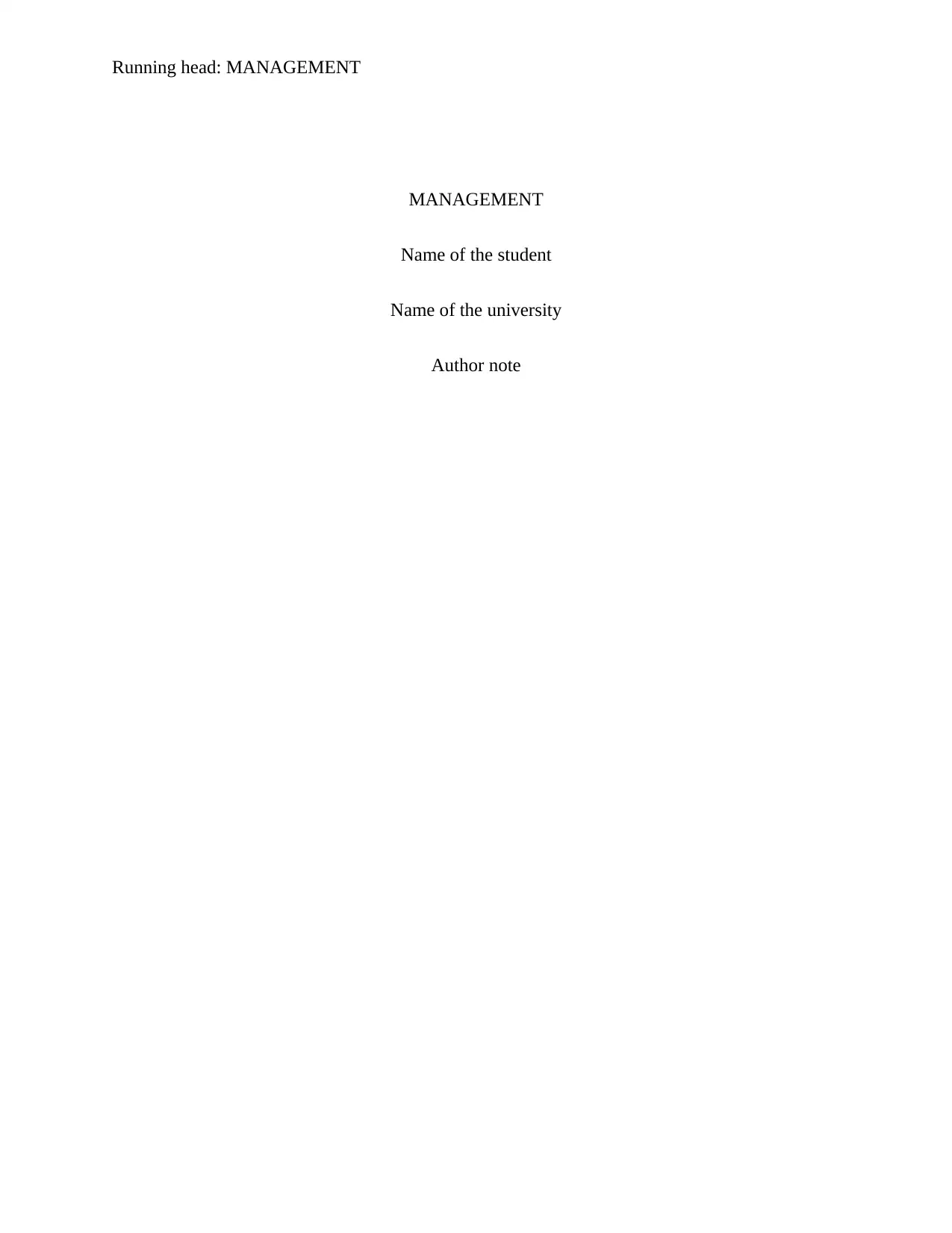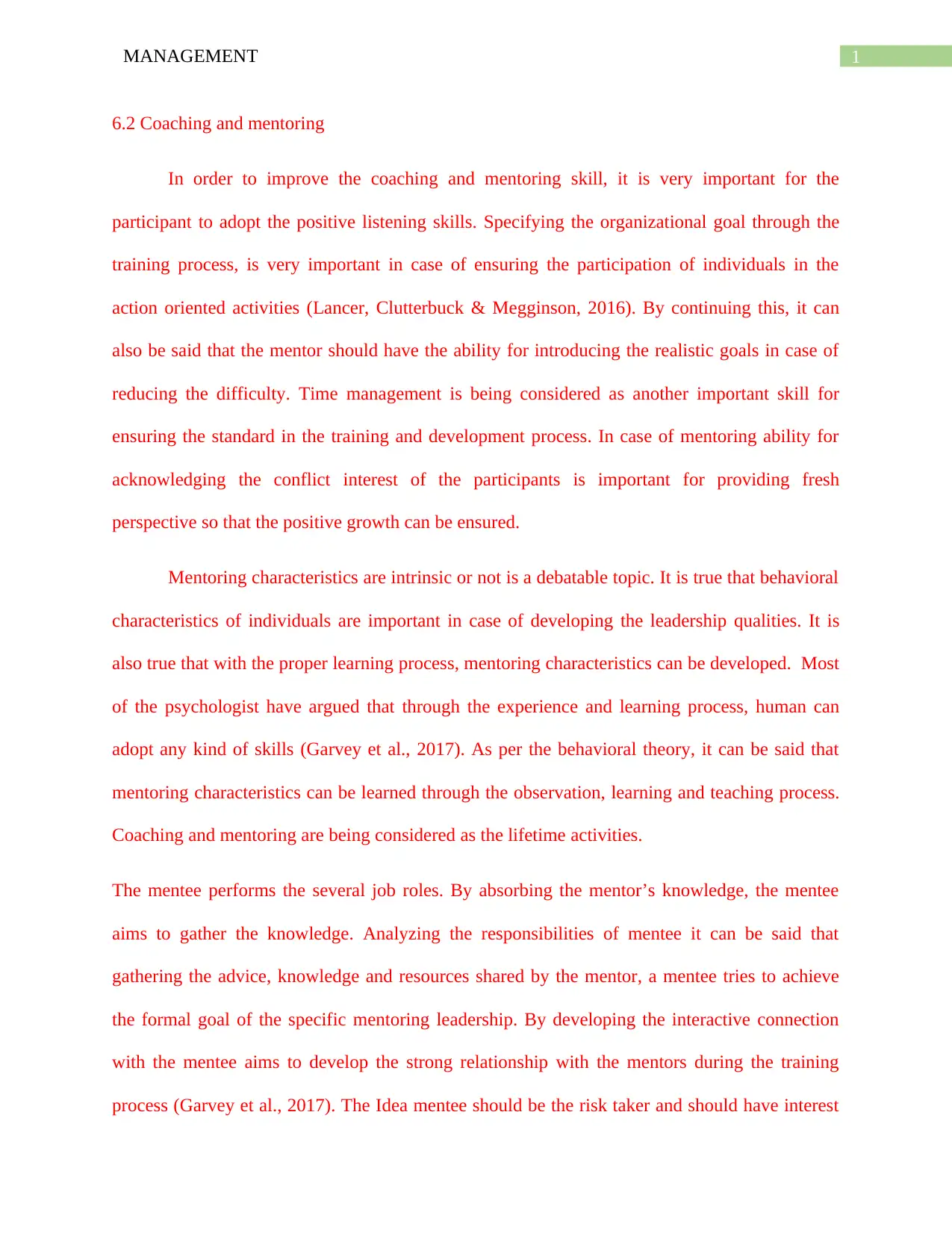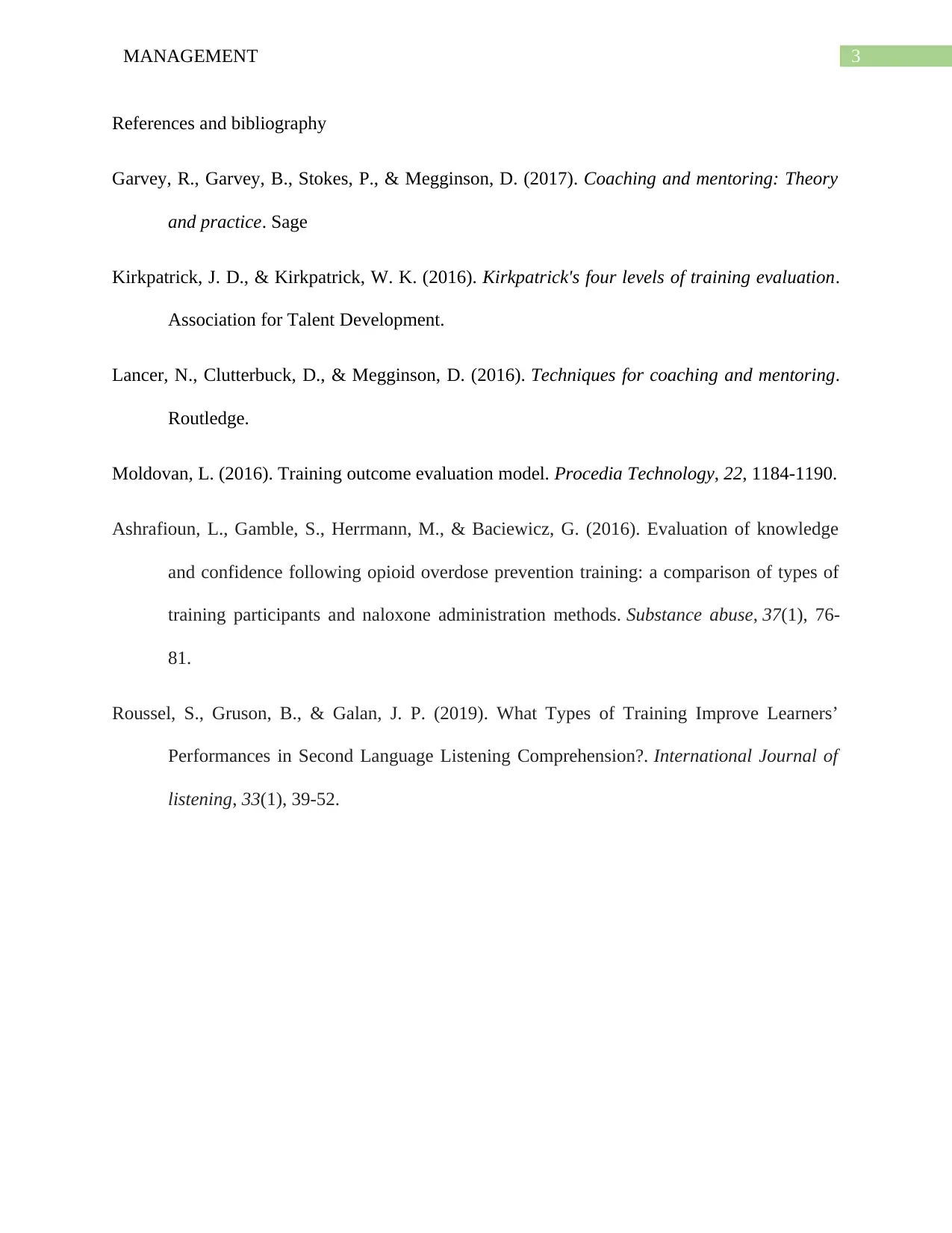Leadership Management: Coaching and Mentoring Report Analysis
VerifiedAdded on 2022/11/25
|4
|593
|216
Report
AI Summary
This report delves into the crucial aspects of coaching and mentoring within the context of leadership management. It highlights the importance of positive listening skills, goal setting, and the role of time management in the training process. The report emphasizes the significance of a mentor's ability to provide constructive feedback and foster a strong relationship with the mentee. Additionally, it discusses the role of the mentee, including their responsibility for absorbing knowledge and contributing to team culture. The report references key literature, including works by Garvey et al. (2017) and Lancer et al. (2016), to support its findings. The report also explores the development of mentoring characteristics, the importance of training outcome evaluation, and the relevance of training in various contexts, such as second language listening comprehension and opioid overdose prevention.
1 out of 4











![[object Object]](/_next/static/media/star-bottom.7253800d.svg)